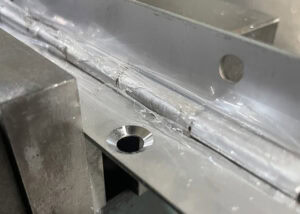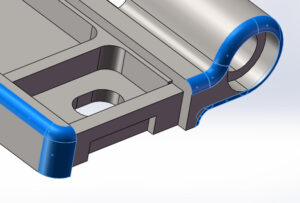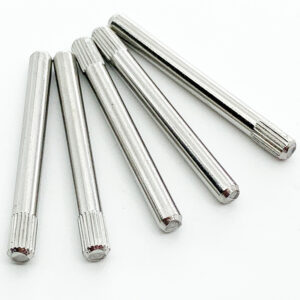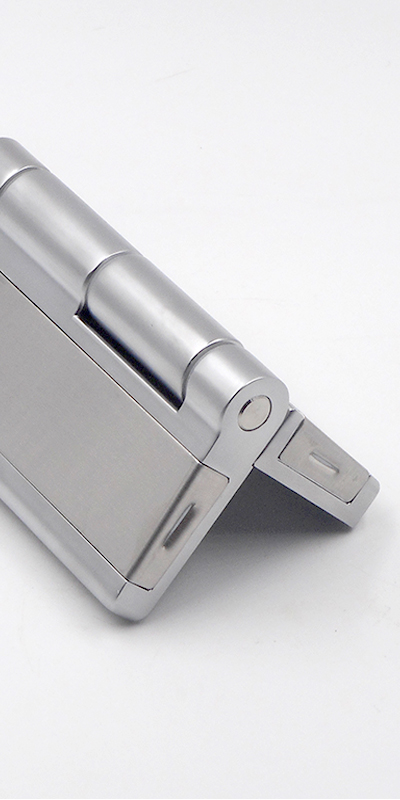In our everyday operations at IHINGES, we often encounter a myriad of queries from clients. One of the recurring questions we get asked is: “What is the thickness of a piano hinge?” It’s an important question. After all, the thickness of the hinge can greatly impact its functionality and suitability for different applications. This is precisely why we decided to delve deeper into this topic today.
So, what is the thickness of a piano hinge? The thickness of a piano hinge, also known as a continuous hinge, can vary considerably. Generally, the thickness can range from as thin as 0.025 inches to as thick as 0.180 inches. The exact thickness often depends on the hinge’s intended use and the weight it needs to support.
You may now be wondering, why does this thickness variation matters? To answer this, let’s dig a bit deeper.
Why Is Piano Hinge Thickness Important?
Understanding the thickness of a hinge is crucial for many of our clients, like Kevin, the purchasing manager for a large U.S. company. Piano hinge thickness can dictate the strength and durability of the hinge.
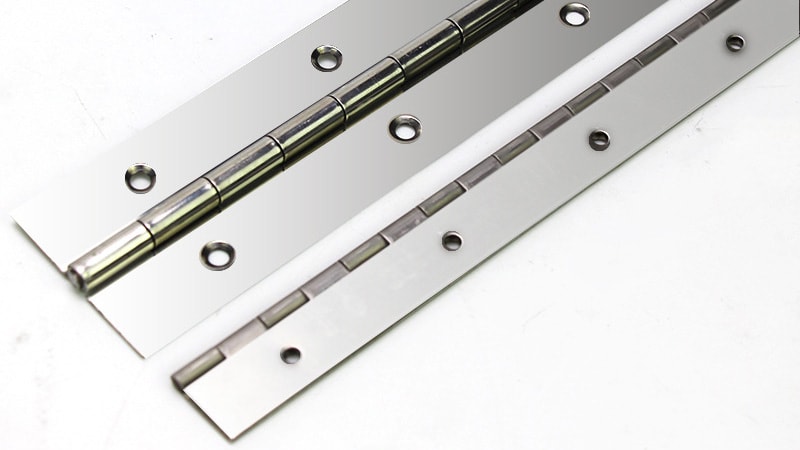
What Determines the Thickness Requirement of a Piano Hinge?
The primary factors that determine the thickness requirement for a piano hinge are the hinge’s length, the door’s weight, and the material type used. The longer the hinge and the heavier the door, the thicker the hinge needs to be. For instance, a heavy-duty hinge used in industrial applications, such as sheet metal enclosure manufacturing, would need to be thicker than a hinge used in a small cabinet door.
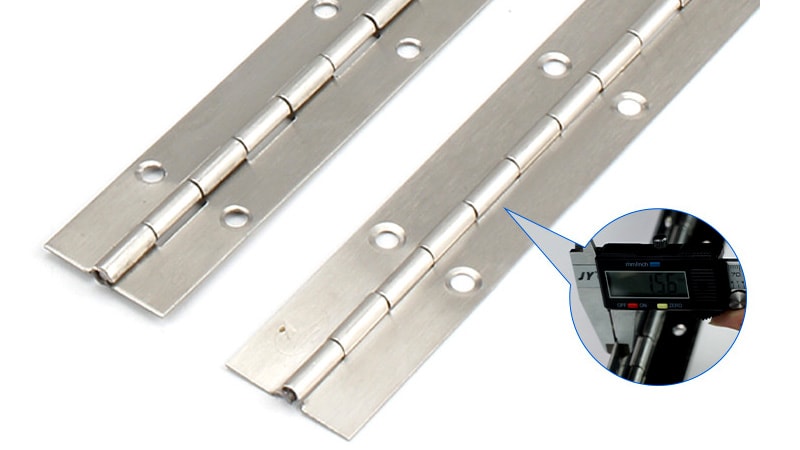
How Does Piano Hinge Thickness Impact Its Application?
Thicker hinges are more robust, offering more strength and resistance to wear. They’re ideal for high-stress applications, such as on large doors or heavy-duty equipment. On the other hand, thinner hinges may be more suitable for lighter applications where aesthetics are more important, like in home furniture.
How Can You Select the Right Hinge Thickness?
Choosing the right thickness for your hinge can be a daunting task, especially if you’re sourcing products for a variety of applications. It’s not only about the hinge’s thickness, but also about the material used, the environment where the hinge will be used, and the load it needs to carry.
As a B2B industrial hinge producer, we’ve spent years working with clients like Kevin, helping them select the right hinges for their needs. Our specialized team can assist you in determining the perfect hinge thickness based on your unique requirements.
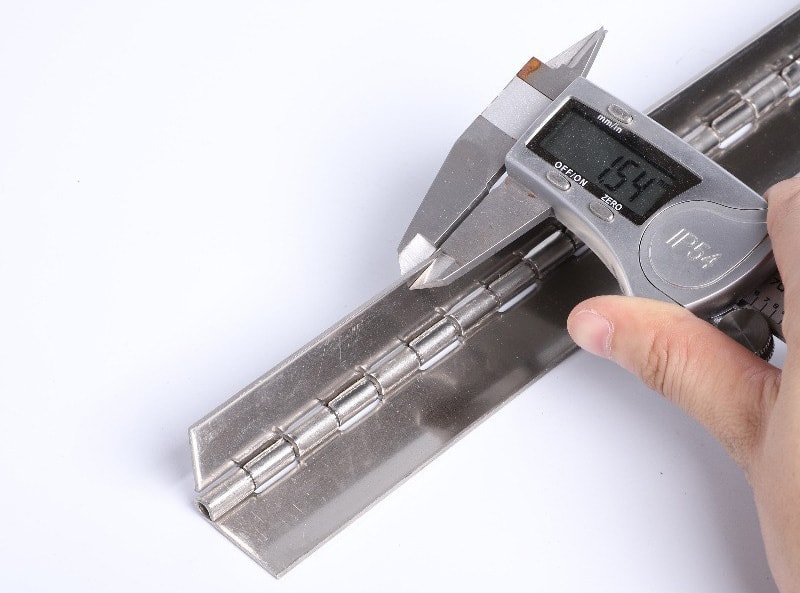
Conclusion
In conclusion, the thickness of a hinge is critical as it directly affects its strength, durability, and applicable use. Choosing the right thickness ensures that the hinge can adequately support the intended weight while offering maximum lifespan and efficiency.
At IHINGES, we’re committed to helping you make the right choice. Whether you’re a hardware distributor, an equipment manufacturer, or a large purchaser, we’ve got you covered. Remember, a hinge isn’t just a hinge – it’s a solution to a problem, and we’re here to help you find that solution.

